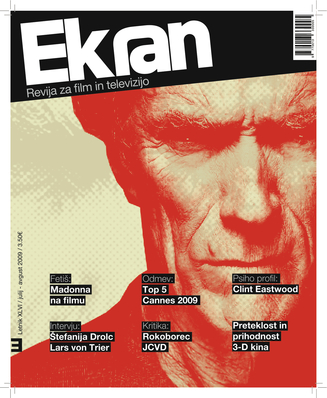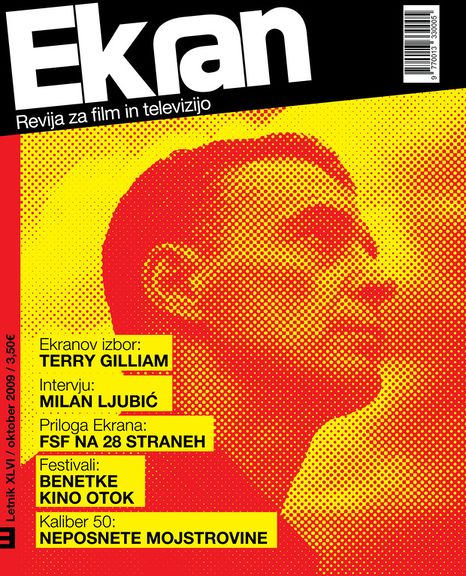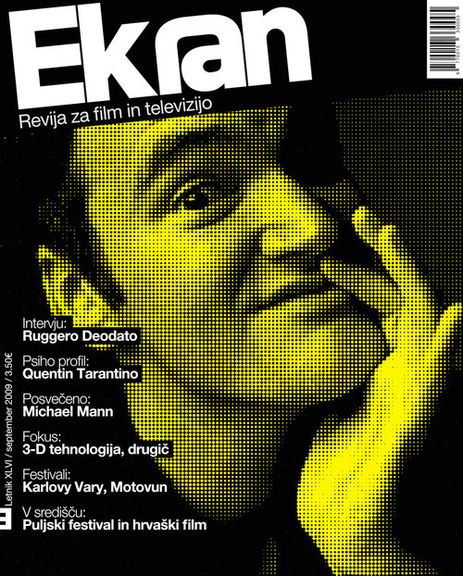Difference between revisions of "Ekran, Magazine for Film and Television"
(Editor change) |
(mwtool_article) |
||
| Line 66: | Line 66: | ||
[[Category:Online media]] | [[Category:Online media]] | ||
[[Category:Film online media]] | [[Category:Film online media]] | ||
| + | [[Category:Film_media]] | ||
Latest revision as of 01:02, 19 February 2021
-
30 May 2018
Austria Vienna ARCC.art Gallery
The panel discussion On News at the closing of the exhibition The News Belongs to Us by Nika Autor, featuring speakers Zdenka Badovinac (Moderna galerija / Museum of Modern Art, Ljubljana plus Museum of Contemporary Art Metelkova), Ciril Oberstar (ZRC Publishing, Dialogi Journal, Ekran, Magazine for Film and Television), and Andrej Šprah (Slovenian Cinematheque, Academy of Theatre, Radio, Film and Television (AGRFT)), moderated by the exhibition's curator Andreja Hribernik, supported by the Slovenian Culture and Information Centre, Vienna (SKICA) (Embassy of the Republic of Slovenia Vienna),
Ekran is a monthly magazine (with a double summer issue) that brings a general overview on contemporary film production (mainstream and independent) while also giving greater attention to Slovene film production.
Historical overview
Ekran magazine was established by the Board for Film and TV at the Council of Associations of Freedom and School organisations of the People's Republic of Slovenia. Despite the fact that Ekran was not the first Slovene film magazine to appear after the Second World War (before it the Film Gazette and Film Magazine were published) at the time of its establishing, writing about cinema was at its beginning. That is why the young team of cinefiles (Vitko Musek, Toni Tršar, Branko Šömen) who in 1962 took over the new film magazine had to lean mostly on translated texts to introduce Slovene readers to the then current situation in world cinema. On the other hand they were among the first to promote new tendencies in the Yugoslav cinema of that time, influenced by the European new waves, mostly the so-called black film (Boštjan Hladnik, Jože Pogačnik and Živojin Pavlović in Slovenia, Aleksandar Petrović, Dušan Makavejev and Želimir Žilnik in other parts of former Yugoslavia) – on the home front and internationally.
The next important period in the history of Ekran were the 1980s when under the strong influence of the modern French film theory Ekran's writers (Slavoj Žižek, Mladen Dolar, Zdenko Vrdlovec, Silvan Furlan, Stojan Pelko etc.) started to merge high theory and popular culture – Lacan and Hollywood films. Their original approach to film studies triggered the golden period of Ekran as its reputation considerably grew as at home as internationally. At that time Ekran, with Silvan Furlan as editor in chief, made a big step forward also in regard to its organisational structure. It was published regularly on a bimonthly basis, it introduced a book collection – Imago, dedicated to film theory (later it was integrated into the publishing activity of Slovenian Cinematheque) – and an international colloquium of film theory called Autumn Film School.
In the mid-1990s Ekran's situation radically changed as it sunk into an editorial crisis and for a year it stopped being published. Towards the end of the decade when Ekran got a new publisher (Slovenian Cinematheque, in 1997) and Simon Popek took over the position of the editor in chief the situation slowly improved. It started to emphasise its cinephile orientation by following film festivals and world cinema and calling to attention the overlooked chapters of film history. From 2005–2009 another editorial turn followed as Nika Bohinc, the next editor in chief, not only decided for a more popular approach to cinema also gave the magazine a distinctive international character. From 2009 till 2015 Gorazd Trušnovec, a film critic and screenwriter turned Ekran into an up-to-date monthly magazine.
See also
External links
- Ekran website (in Slovenian)
- Ekran Untranslated - Ekran's blog and international website (updated until 2008)
- Yugoslav new wave cinema - black film on Filmreference.com







